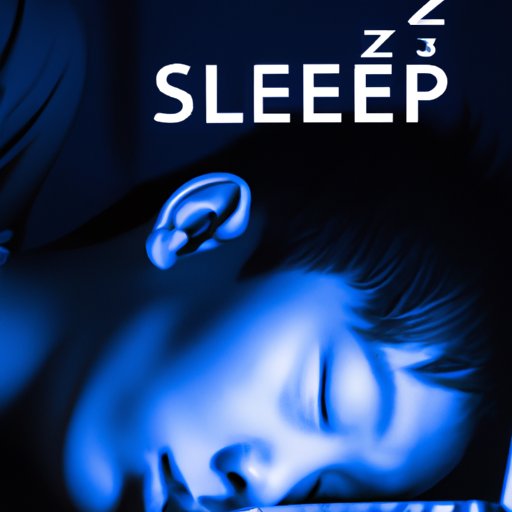
Introduction
Sleep is an essential part of our daily lives, yet many people struggle with feeling sleepy during the day. From work productivity to mood and overall health, sleepiness can have a significant impact on our lives. This article aims to delve into the factors that contribute to feeling drowsy and to provide practical tips on how to achieve better sleep quality. Whether you are a student, office worker, or a stay-at-home parent, the information discussed in this article is applicable to anyone who wants to improve their sleep habits.
Common Misconceptions about Sleepiness
Many people assume that feeling sleepy or tired is simply a result of not getting enough sleep. However, there are numerous other factors that can cause drowsiness. Poor diet, dehydration, medication, and medical conditions such as sleep apnea or depression can disrupt sleep. It is important to identify the root cause of sleepiness to address the issue effectively.
The Effect of Electronic Devices on Sleep Patterns
The use of electronic devices such as smartphones, laptops, and tablets is a common part of our daily routine. However, these devices emit blue light that interferes with our circadian rhythm. Blue light mimics daylight, so it can confuse our brain into thinking it is daytime, preventing the production of melatonin, the hormone responsible for regulating sleep. To avoid this, it is crucial to limit screen time before bed. Experts recommend avoiding screens for at least 30 minutes before sleeping. This allows the brain to wind down and prepare for a good night’s rest. Other practical tips include using blue light blocking glasses and adjusting screen settings to reduce blue light emission.
Practical Tips for Better Sleep
Creating a relaxing sleep environment is essential for better sleep quality. Keeping the room cool, dark, and quiet can help us to fall asleep faster and stay asleep longer. When it comes to establishing a sleep routine, consistency is key. Going to bed and waking up at the same time every day helps regulate the body’s internal clock. Maintaining a healthy diet, avoiding caffeine and alcohol before bedtime, and establishing relaxation techniques like deep breathing or meditation can also improve sleep quality.
Exercise and Physical Activity
The benefits of physical activity on overall health are well-documented, and quality sleep is no exception. Exercise helps to release endorphins, the body’s natural feel-good hormone. This can help to reduce stress and anxiety, leading to better sleep quality. However, exercising too close to bedtime can have the opposite effect, making it harder to fall asleep. Experts suggest incorporating regular physical activity into our daily routine at least two to three hours before bedtime to enjoy its full benefits.
Different Types of Sleep Disorders
There are different types of sleep disorders that affect many individuals. Insomnia, narcolepsy, restless leg syndrome are some conditions that affect the quality and quantity of sleep. These can be caused by various factors such as stress, medical conditions, or lifestyle choices. It is crucial to seek medical assistance if you experience chronic sleep disturbances that impact your daily life. Healthcare professionals can help you find the root cause of the issue and provide treatment strategies.
Conclusion
Sleep is vital for our overall well-being, and it is essential to address sleep issues to improve our quality of life. By understanding the factors that contribute to sleepiness, individuals can take practical steps to improve their sleep quality. From creating a relaxing sleep environment to incorporating regular physical activity and seeking medical attention when necessary, implementing these tips can help to improve sleep quality and ultimately lead to better overall health.




